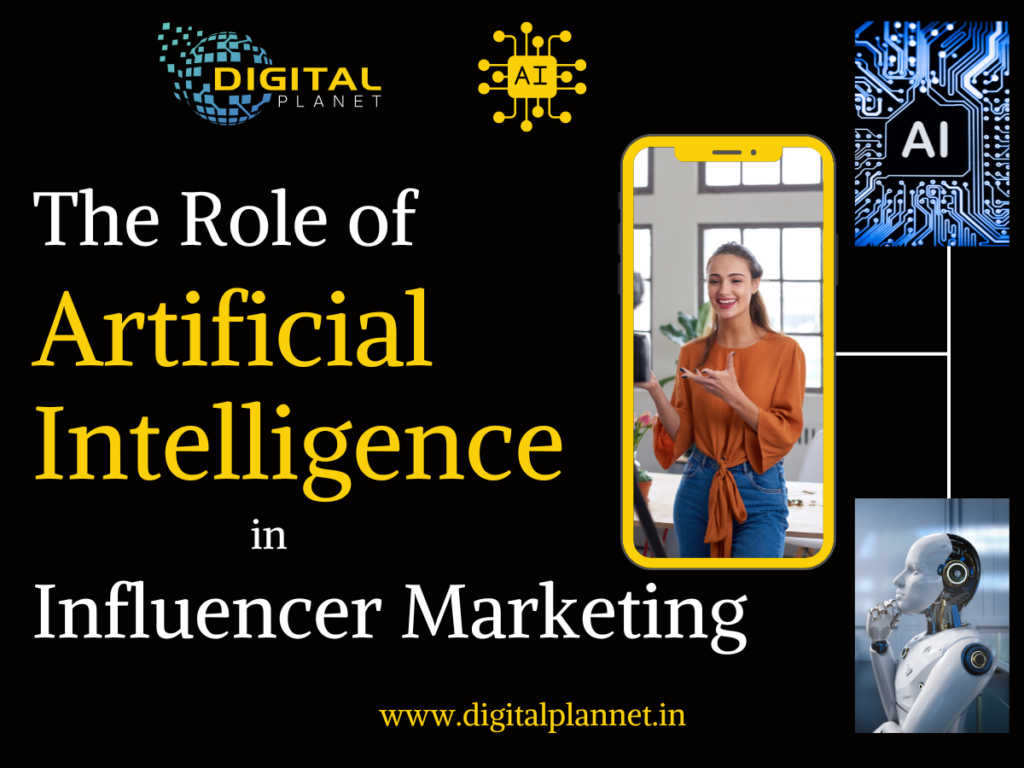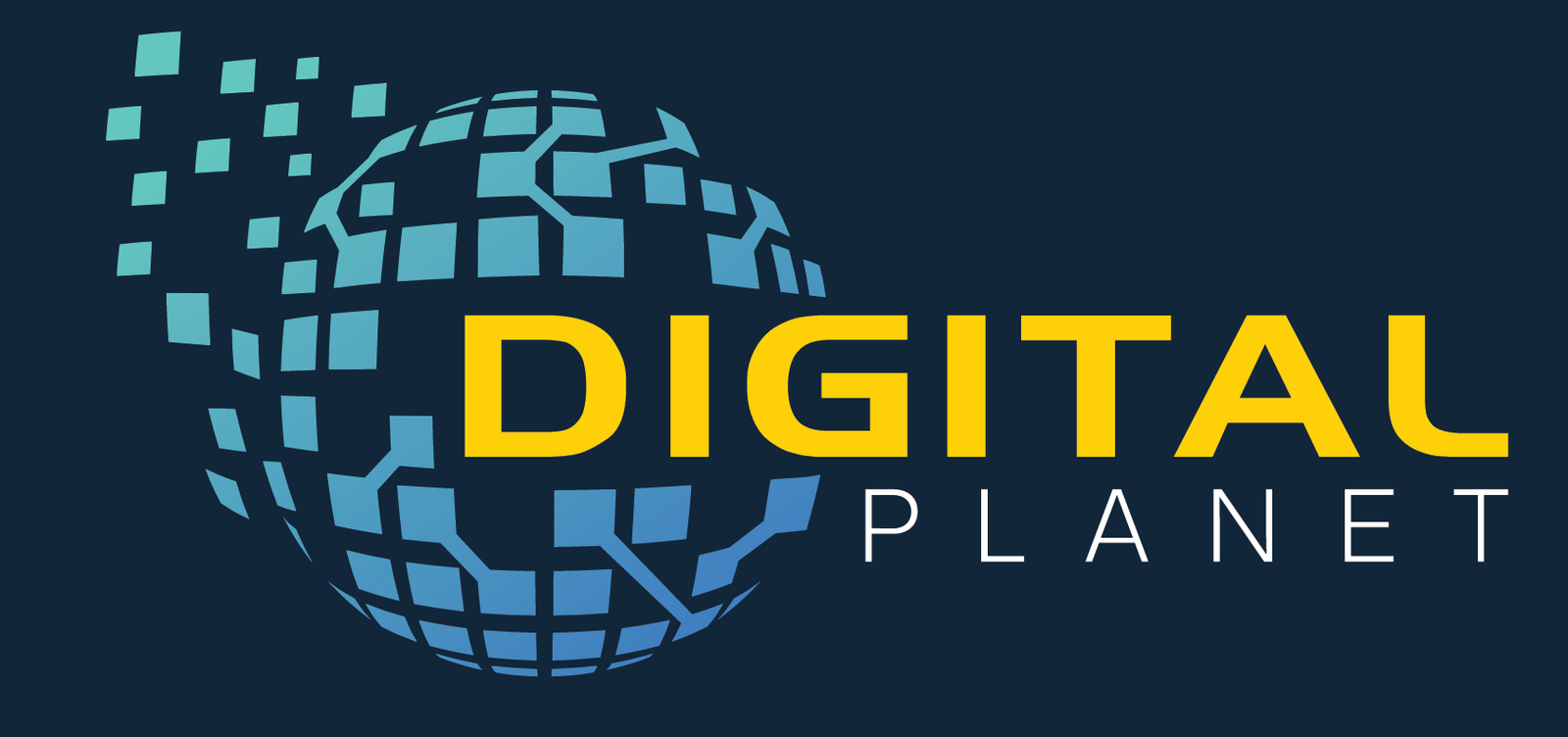The Role of AI in Influencer Marketing

In the digital marketing world, Artificial Intelligence (AI) has become a game-changer, significantly reshaping various domains, including influencer marketing. With its ability to analyze vast amounts of data and automate tasks, AI is revolutionizing how brands connect with influencers and how they strategize their marketing efforts. This article delves into the profound impact of AI in influencer marketing, offering insights into how businesses can leverage this technology to enhance their marketing strategies.
The Intersection of AI and Influencer Marketing:
Influencer marketing has rapidly evolved, moving from traditional celebrity endorsements to include niche influencers across various social media platforms. With this evolution comes the challenge of identifying the right influencers, measuring campaign success, and ensuring authenticity in brand collaborations. AI comes into play as a powerful tool that can address these challenges effectively.(AI in influencer)
AI in Influencer Identification:
One of the primary challenges in influencer marketing is finding the right influencer who aligns with a brand’s values and target audience. AI simplifies this process by analyzing data from social media platforms, blogs, and other digital spaces to identify potential influencers most likely to resonate with a brand’s audience. Machine learning algorithms can analyze influencers’ past performances, audience demographics, and engagement rates to provide a list of potential candidates that fit a brand’s specific criteria.
Benefits of AI in Influencer Identification:
1. Enhanced Precision: AI algorithms can sift through millions of profiles, considering multiple factors that human marketers might overlook, such as micro-interactions and sentiment analysis.
2. Time Efficiency: What might take a marketing team weeks to accomplish, AI can do in a matter of hours, significantly speeding up the process of influencer identification.
3. Bias Reduction: By relying on data and analytics, AI reduces the biases often inherent in human decision-making, ensuring a more objective selection process.
AI in Campaign Strategy and Optimization:
AI not only helps in identifying the right influencers but also plays a crucial role in shaping campaign strategies. Through predictive analytics, AI can forecast campaign outcomes based on historical data, helping marketers make informed decisions about budget allocation, content creation, and timing.
Key AI Applications in Campaign Strategy:
Content Personalization: AI can analyze audience data to tailor content that is more likely to engage a specific audience. By understanding what type of content resonates with different segments, brands can create more effective marketing messages.
Performance Forecasting: AI can predict the potential success of a campaign by analyzing past trends and current data, allowing marketers to tweak strategies before full-scale implementation.
Real-Time Optimization: AI-powered tools can monitor ongoing campaigns and adjust strategies in real-time based on performance data, ensuring optimal outcomes.
AI in Measuring Campaign Success:
Traditionally, measuring the success of influencer marketing campaigns has been a complex task, often relying on manual reporting and subjective interpretations. AI changes the game by providing data-driven insights that allow marketers to assess the true impact of their campaigns.
Metrics Enhanced by AI:
Engagement Analysis: AI tools can track likes, comments, shares, and mentions across various platforms, providing a comprehensive view of how audiences are interacting with content.
Sentiment Analysis: By analyzing the language used in comments and posts, AI can determine the overall sentiment toward a campaign, whether it’s positive, negative, or neutral.
Return on Investment (ROI): AI can calculate the ROI of campaigns by correlating marketing spend with increased sales, website traffic, or brand awareness.(AI in influencer)
AI and Authenticity in Influencer Marketing:
A significant concern in influencer marketing is ensuring authenticity and preventing fraudulent activities, such as fake followers and engagement. AI plays a pivotal role in maintaining authenticity by detecting anomalies and patterns indicative of fraudulent behavior.
AI Techniques for Ensuring Authenticity:
Fraud Detection: AI can identify fake followers and engagement by analyzing patterns that are inconsistent with natural user behavior.
Content Authenticity Verification: Through image and video recognition, AI can verify the originality of content shared by influencers, ensuring that brands are not associated with plagiarized or fake content.
Audience Quality Assessment: AI can assess the quality of an influencer’s audience, differentiating between genuine engagement and automated bot interactions.
AI-Driven Platforms Transforming Influencer Marketing:
Several AI-driven platforms are at the forefront of transforming influencer marketing. These platforms leverage AI to provide comprehensive solutions for brands looking to maximize their influencer marketing efforts.
Traackr:
Traackr is a robust influencer marketing platform that uses AI to offer influencer discovery, relationship management, and campaign measurement. It helps brands understand the impact of their influencer partnerships and optimize strategies for better results.
Klear:
Klear is an AI-powered platform that specializes in influencer identification and analytics. It provides insights into influencers’ audience demographics, engagement rates, and content performance, allowing brands to make data-driven decisions.
Influencity:
Influencity uses AI to analyze over 100 million profiles, helping brands find the perfect influencers for their campaigns. Its AI capabilities enable precise targeting and performance tracking, ensuring that marketing efforts yield the desired outcomes.
Heepsy:
Heepsy offers AI-driven tools for finding influencers based on niche interests and geographical locations. Its advanced filters and analytics empower brands to connect with influencers who can genuinely impact their target audience.
Challenges and Considerations in AI-Driven Influencer Marketing:
While AI offers significant advantages in influencer marketing, it is not without its challenges. Brands need to be aware of these challenges to effectively leverage AI in their marketing strategies.
Data Privacy Concerns:
AI relies heavily on data, raising concerns about user privacy and data protection. Brands must ensure that their use of AI complies with data privacy regulations and that they maintain transparency with their audience regarding data usage.
Dependence on Algorithms:
Over-reliance on AI algorithms can lead to a lack of human intuition in decision-making. While AI provides valuable insights, it is essential for marketers to balance data-driven decisions with human creativity and judgment.
Cost of Implementation:
Integrating AI into influencer marketing strategies can be costly, especially for small businesses with limited budgets. Brands must weigh the potential benefits against the costs and consider starting with scalable AI solutions that fit their needs.
The Future of AI in Influencer Marketing:
The role of AI in influencer marketing is expected to grow even more significant. The future will likely see more sophisticated AI tools capable of providing deeper insights into consumer behavior, enhancing personalization, and fostering more authentic connections between brands and influencers.
Predicted AI Advancements:
Advanced Personalization: AI will enable hyper-personalized marketing messages that cater to individual preferences and behaviors, increasing engagement and conversion rates.
Enhanced Predictive Analytics: AI will become even more adept at predicting trends and consumer preferences, allowing brands to stay ahead of the competition.
Augmented Reality (AR) Integration: AI-powered AR experiences will become more prevalent in influencer marketing, offering immersive brand interactions that captivate audiences.
Conclusion
AI is undeniably transforming influencer marketing, offering brands the tools they need to navigate the complexities of the digital landscape effectively. By harnessing AI’s capabilities, brands can enhance influencer identification, optimize campaign strategies, measure success with precision, and maintain authenticity in their collaborations. As we look to the future, role of AI in influencer marketing is set to expand, offering even more opportunities for brands to connect with their audiences meaningfully.

